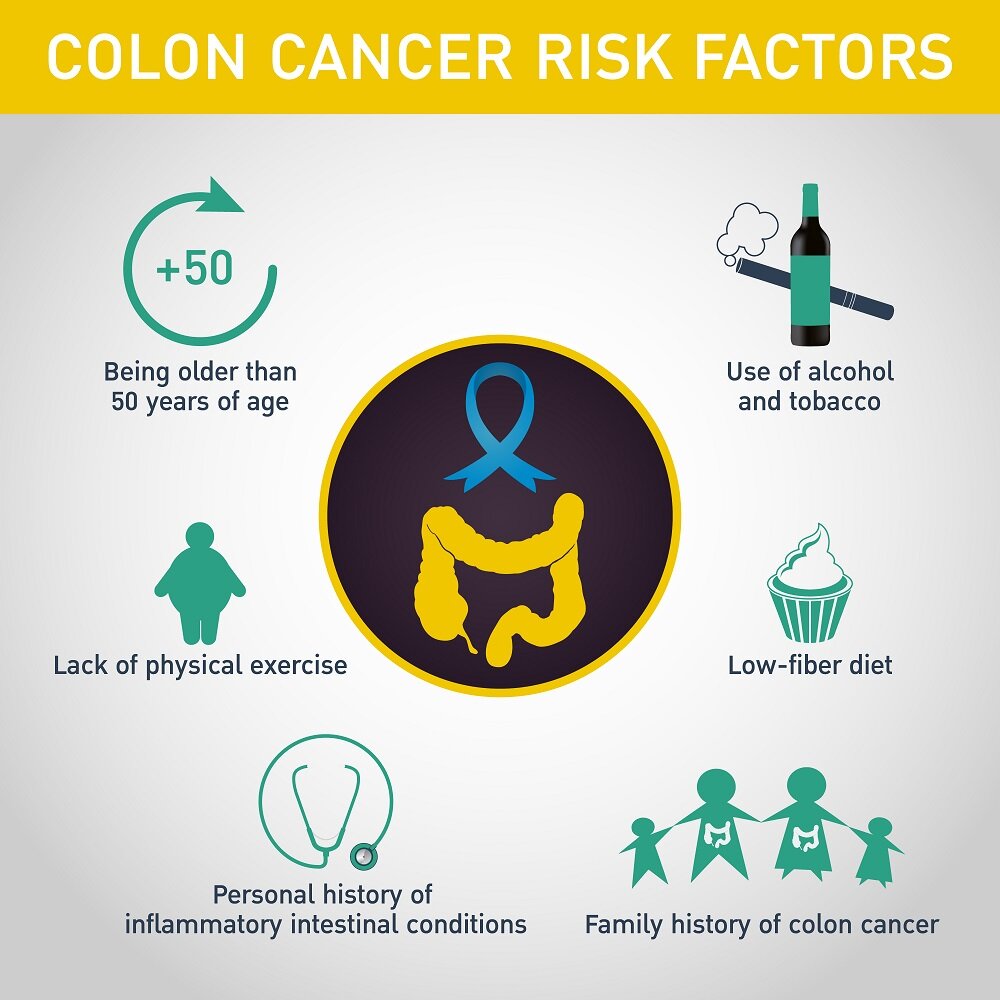Everything You Need to Know Colon Cancer
Colorectal cancer (CRC) is the third most common cancer diagnosed in both men and women worldwide, with an estimated 1.8 million new cases reported in 2018. This is the second most common disease in the USA, and the second highest cause of death from disease.
As March is seen as the month of global awareness of colorectal cancer, we are talking to gastroenterologists to learn more about the disease and how to reduce the risk by proper colon cancer screening.
Colorectal Cancer- What Is It?
This either originates in rectal or large intestine (colon) cells. Since all the organs are part of the large intestine and the digestive system, cancers of the colon and rectum are often grouped together.
In most cases, colorectal cancer starts with benign tumors or polyps-an irregular tissue formation-on the rectum and colon lining. Some polyps shift to get cancerous over time.
However if you experience any of the symptoms, such as abdominal pain, changes in bowel behavior, rectal bleeding, rectal mass, rapid weight loss and anemia, seek medical attention with colonoscopy screening. Signs of concern can also be intestinal obstruction, peritonitis and/or acute gastrointestinal (GI) bleeding.
What Are the Risks?
The chance of colorectal cancer typically rises with age, generally in people 50 years of age and older. However, recent reports suggest a rising occurrence of colorectal cancer worldwide in patients younger than 50.
A study published last year in the journal Lancet Gastroenterology & Hepatology addressed the increasing burden of the disease in younger people over the past 10-year period, explaining that the rise in incidence among younger generations was likely to be motivated in part by the evolving prevalence of risk factors, such as obesity and poor diet.
Common risk factors include inflammatory bowel disease such as Crohn's disease and ulcerative colitis; cancer family history or polyps; family adenomatous polyposis (FAP), a hereditary syndrome; and Lynch syndrome, an inherited disorder that raises the risk of colon cancer.
How Will They treat it?
Colonoscopy is now the gold standard for the colon cancer screening. The colorectal cancer cannot be avoided altogether. But you can that the risk by getting yourself tested regularly, beginning at age 40.
All colorectal cancers begin in the colon or rectum, as precancerous polyps. They do not cause any early-stage symptoms. Therefore doctors also recommend routine screening tests to prevent colon cancer from developing. Via the polypectomy process, if necessary, doctors can easily remove these polyps until they become cancer. Regular moderate physical activity and consuming a healthy diet of fruit and vegetables, whole grains and fiber-containing foods minimize the risk of disease.
You can visit Digestive Disease in OKC for colonoscopy screening if you get any symptoms.
**Disclaimer: This blog content does not offer a doctor's advice and creates no relationship between any patient and care provider.

